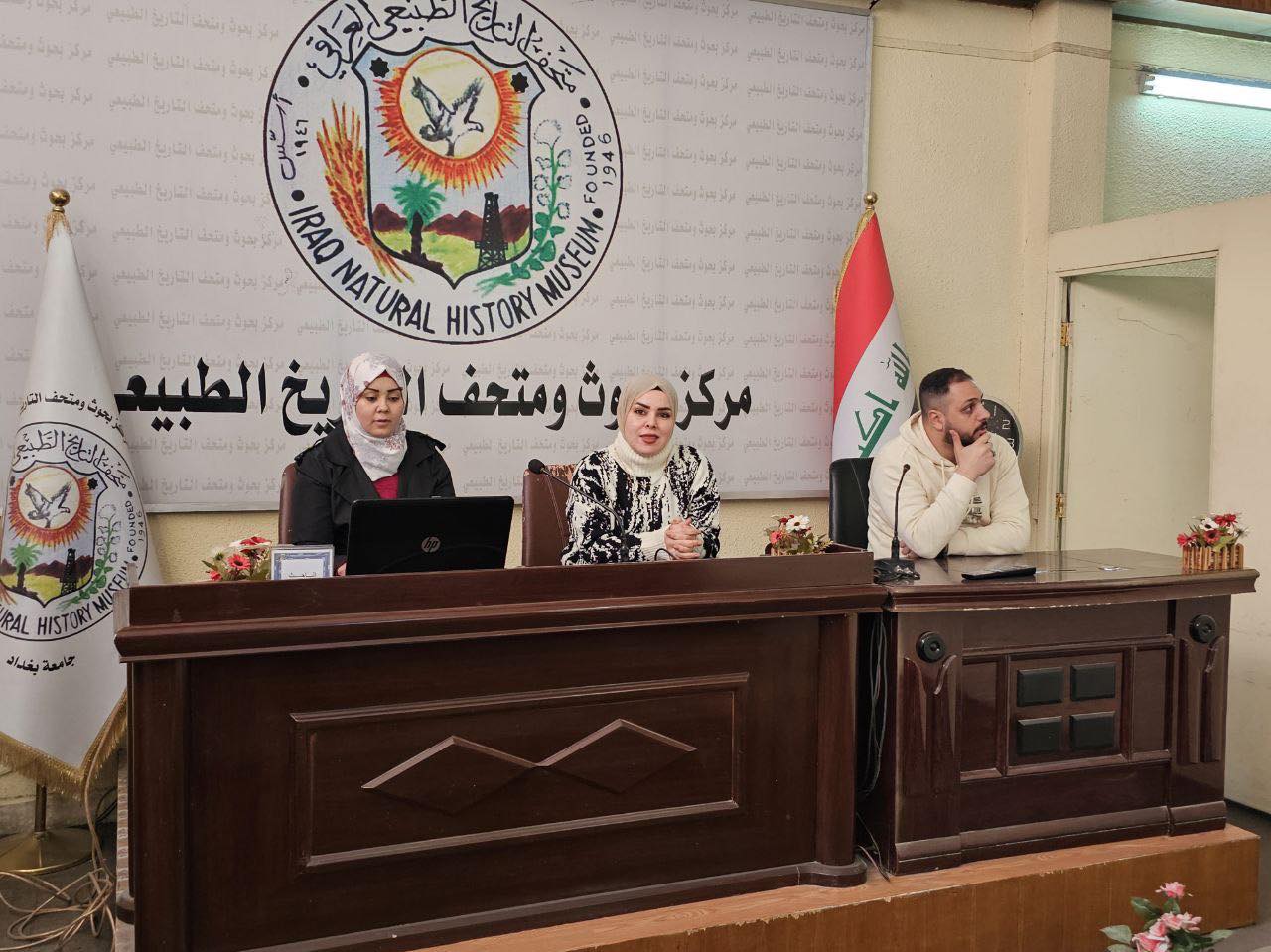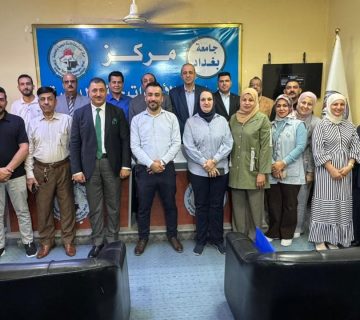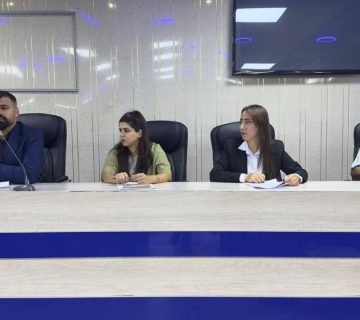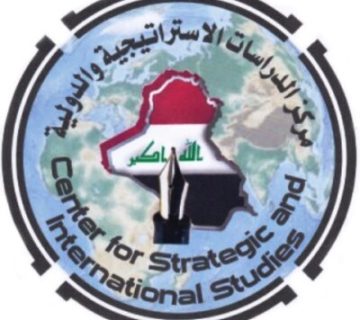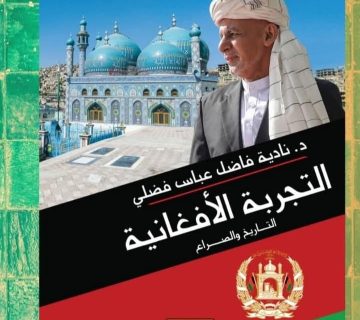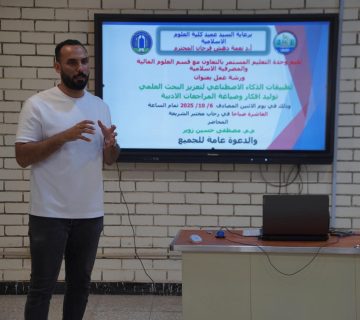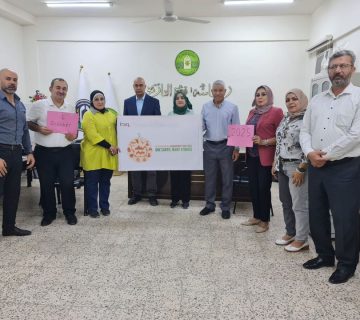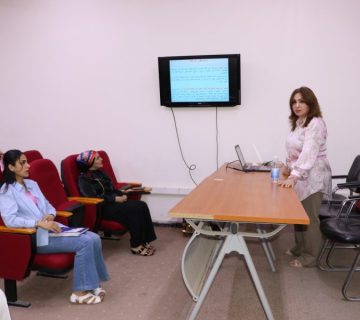The Natural History Center and Museum, in cooperation with Women’s Affairs at the University of Baghdad, organized a workshop tagged (The Role of University Professors in Educating Students to Combat Drugs). The lecture was moderated by assistant teacher Ali Kamel and people and delivered by the assistant lecturer. Fatima Hussein Brij and Assistant Lecturer Sarah Jamal on the occasion of World Anti-Drug Day and the launch of the Global Entrepreneurship Week.
The workshop aimed to show the types of narcotic substances and their impact on humans in terms of the fact that their types are plant, manufactured, or chemical compounds, some of which have psychological and physical effects (opium, cocaine, and morphine) and others have a psychological effect only, such as drugs related to hallucinogens, and also aimed to raise awareness among students and reduce their spread within the university environment, as well as developing strategies to reduce the demand for drugs by reducing the desire to obtain and abuse them through preventive and awareness programs and studying the reasons that led to the abuse of these contraband through the function of community service by creating awareness groups of specialists to identify their risks and prevention.
The workshop came out with a set of recommendations, the most important of which is activating the role of women’s affairs in cooperation with educational guidance in universities and those concerned with decision-making, to the importance of preparing preventive counseling programs by training college members on these programs and integrating them into academic lectures, research, discussions, seminars, and journals, and organizing scientific field visits to specialized medical centers for the treatment of drug users to inform students to modify their tendencies and modify their attitudes towards drug abuse and psychotropic substances, to help students and build a new conscious generation and an environment free of Narcotics.


